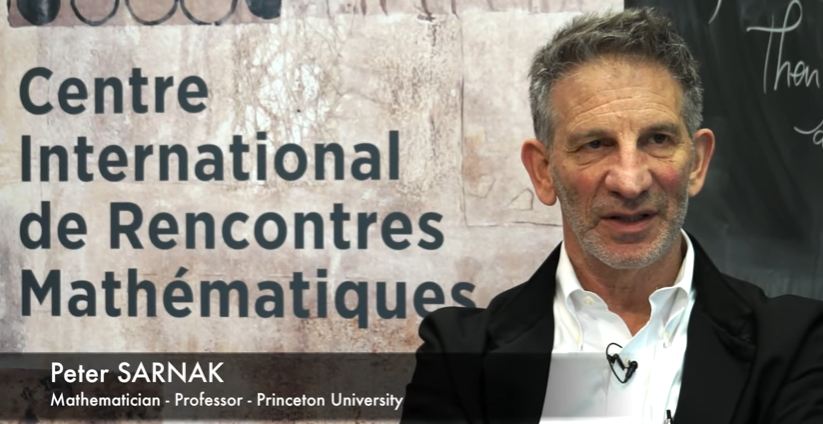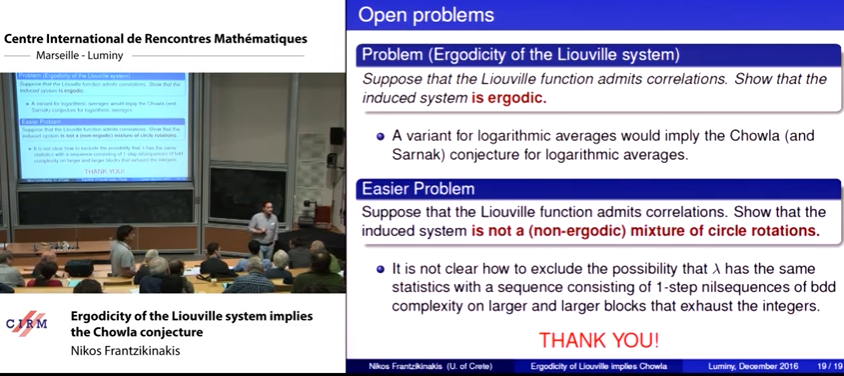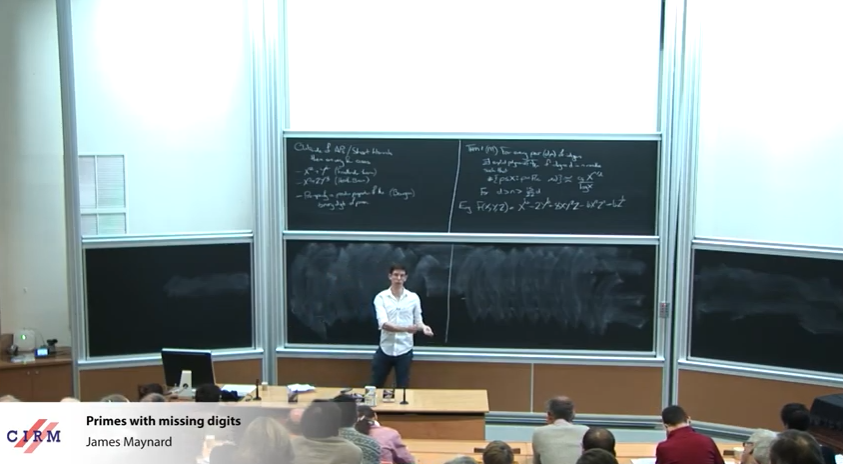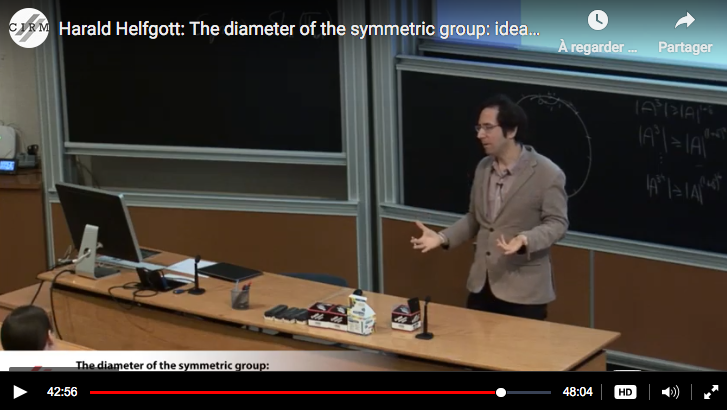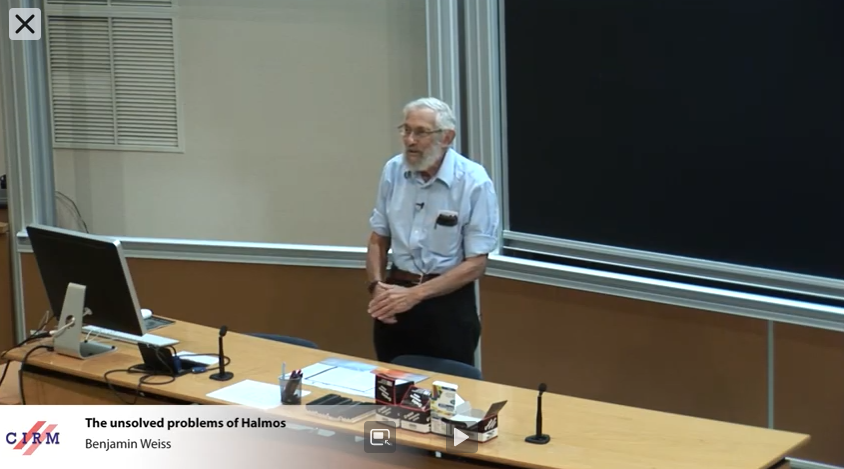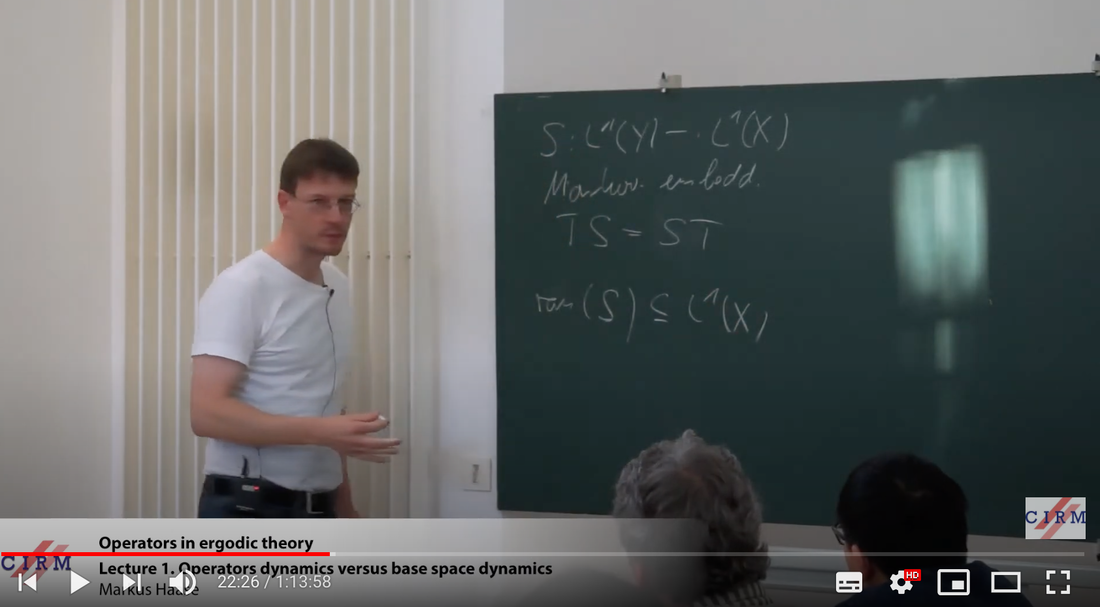Ergodic Theory and its Connections with Arithmetic and Combinatorics (1553)
Théorie ergodique et ses connexions avec l’arithmétique et la combinatoire
Dates: 12-16 December 2016 at CIRM (Marseille Luminy, France)
|
DESCRIPTION
The conference is aimed at interactions between ergodic theory and dynamical systems and number theory. The main subjects are: disjointness in ergodic theory and randomness in number theory, ergodic theory and combinatorial number theory, and homogenous dynamics and its applications. As we count on the participation of the best world experts in these domains and on participation of brilliant young researchers, the conference should present the best of the state-of-the-art of these domains and will also show perspectives and challenges for them.
|
SCIENTIFIC COMMITTEE
ORGANIZING COMMITTEE
SPEAKERS
Weak model sets and dynamical systems of number-theoretic origin
Ergodic theory for Hénon-like maps (pdf)
Some open problems and conjectures at the interface of Ergodic Theory, Number Theory and Combinatorics
Nice Banach limits associated with Hardy fields (pdf)
Normal Subsequences of Automatic Sequences (pdf)
Measure Rigidy and Quantitative Recurrence
Ergodicity of the Liouville system implies the Chowla conjecture (pdf)
Convergence of measures and arithmetics of Shimura varieties
The diameter of the symmetric group: ideas and tools
Dimension of Furstenberg measure of SL2(R) random matrix products
Correlations and nilsequences (pdf)
Shifts of low complexity
Primes with missing digits
On the natural extensions of some complex continued fraction transformations
Counting solutions in Intrinsic Diophantine approximation (pdf)
Patterns of primes in arithmetic progressions (pdf)
Quantum Unique Ergodicity for half-integral weight forms
Dynamical properties of weak model sets (pdf)
Integral points on Markoff type cubic surfaces and dynamics (pdf)
Nonmixing sets of algebraic Zd-actions (pdf)
The Unsolved Problems of Halmos
Random differences of arithmetic progressions in the primes
Regionally proximal relation of higher order: results and questions (pdf)
Jump inequalities for polynomial ergodic averages |




